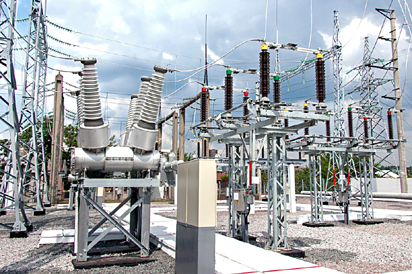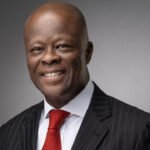Two years after President Muhammadu Buhari, the German Government and a German company, Siemens AG, inked a 25,000 megawatts (MW) Presidential Power Initiative (PPI), work is yet to take off at any power station under the phase one that ought to raise the electricity grid to 7,000MW by the end of this year.
Nigeria’s power system is suffering from an imbalance between power generation and demand. Despite more than 8,000MW of operational power generation capacity in the country, only an average of 4,500MW actually reaches consumers.
- Yahoo boy nabbed trying to behead varsity student in Bayelsa
- Hajj: 599 intending pilgrims refunded in Katsina
To change the narrative, Siemens and the Nigerian Government signed an implementation agreement for the Nigeria Electrification Roadmap in July 2019 with a goal to secure a reliable and affordable electricity supply.
At the ceremony, which was held at the State House Abuja, Joe Kaeser, President and CEO of Siemens AG, said “Its implementation will significantly enhance Nigeria`s energy system, create thousands of new qualified jobs and will enable the country and its people for the next level of industrial and societal development.”
Commenting, the then Managing Director, Siemens Energy Limited, Nigeria, Onyeche Tifase, said “The Presidential Power Initiative (PPI) is a testament to the federal government’s determination to resolve Nigeria’s electricity challenges.”
The process that led to the Presidential Power Initiative (PPI) formerly the Nigeria Electrification Roadmap (NER) agreement signing, however, started on August 31, 2018, in Abuja, during a visit by the German Chancellor, Angela Merkel and her business delegation which included Kaeser.
In a brief by Siemens, the company said it agreed to help Nigeria to facilitate financing for the project through the German Export Credit Agency (Euler Hermes AG), other ECAs, and other financing Agencies. The loan has a three-year moratorium and a 12-year repayment plan.
According to the working document published by Siemens, the project should have an impact on over 25 million households.
While was targeted to take the national power grid to 7,000MW operational capacity this year, the initiative planned to upscale the target to 11,000MW and 25,000MW thereafter.
However, no cogent sign of the project implementation is visible so far, just as the power supply situation has not improved in the same period.
Project status
There are also growing concerns over the implementation status of the programme, two years after it was initiated.
The project, taunted to be a game-changing one, was initially at the Office of the Chief of Staff to the President, with the former CoS, Abba Kyari, contracting COVID-19 after a trip to Germany over the project.
Recently, Nigerian author, Chimamanda Adichie, asked the German Chancellor, Angela Merkel, on the Siemens-Nigeria Power project progress, at a public event in Germany.
Chimamanda and Chancellor Merkel were guests speakers at a panel held at the Düsseldorf’s Schauspielhaus Theatre.
Responding to Adichie’s question, the German leader said, “I will get back to you. You will get your answer.”
The chancellor had also said the local content demand in the contract was 40 to 50 per cent, stating that if that request is granted, it may affect investors.
John Okworie, a power industry stakeholder noted that the project was only seen in the paper with no on-the-ground evidence. “We have not seen anything at the DisCo or transmission network so far.”
Some officials of DisCos and the Transmission Company of Nigeria (TCN), which are chains affected by the scope of phase one of the programme, told Daily Trust that although key projects have been captured for rehabilitation, there was no practical work yet.
How Siemens ought to deliver project
To deliver on the deal, Siemens structured the project into three phases. In the first phase, the company said it will focus on critical and ‘quick win’ interventions to increase the system’s end-to-end operational capacity (which is estimated at about 5,000MW) to 7,000MW by 2021, the initial document stated.
Under this phase, the project will focus on transmission system upgrade, distribution system upgrade, power system studies and training, data management systems, technical training of TCN and DisCo employees on power equipment, systems and solutions.
In the second phase, Siemens said it will work to raise the power grid capacity to 11GW (11,000MW) by 2023, by ensuring further transmission system upgrade, further distribution system upgrade, rehabilitation of power plants, providing embedded power generation projects for DisCos and engaging in gas process projects to utilise flared gas for old and new power plants.
The third phase, according to Siemens, is on achieving total operational grid capacity of 25GW (25,000MW) by 2025, with commensurate upgrades and expansion of the national generation, transmission and distribution systems. This includes power generation projects to be brought on stream by the Nigerian National Petroleum Corporation (NNPC) comprising 1,350MW plant in Kaduna, 1,350MW plant in Kano and 450MW plant in Agura (Lagos).
Project at design stage
In July 2020, exactly one year after the initial project signing, Siemens’ pre-engineering contract for the project was announced.
“Siemens will begin pre-engineering works for the transmission, distribution and Meter Data Management Systems (MDMS) infrastructure across the country, to enable the development of a functional, efficient and reliable electricity grid system. Comprehensive studies and power system analysis software for the Nigerian utilities are also included,” said Siemens in a statement.
“The pre-engineering contract is the start of a longer-term approach,” Siemens said.
This is before the company would commence phase one of the project, which is expected to raise the grid to 7,000MW this year.
The Minister of State for Power, Mr Goddy Agba, in September last year, said the phase one of the project will gulp about $2.3 billion to increase power grid operational capacity to 7,000MW.
The minister said the fund would be through a loan from a consortium of German banks for 85 per cent of the contract sum; while 15 percent counterpart funding would be from the federal government.
In February, Special Assistant to President Buhari on Digital and New Media, Tolu Ogunlesi, in a statement on social media, gave further details about the contracts signed in the pre-engineering stage of the Siemens power deal.
The contracts include engineering design, finalising project specifications, commissioning works for transmission and distribution systems, network development studies, power simulation, training – support services.
Providing updates on the project, the Chief Executive Officer of Siemens Energy Limited, Mr Seun Suleiman, whose appointment was announced in February 2021, told newsmen recently that the pre-engineering phase was ongoing and would be completed soon.
“We are doing the pre-engineering for the distribution network. We have already got a Letter of Credit (LC) from the federal government to start it.”
The Siemens official also said for the transmission network, 11 substations were initially provided for the upgrade but that it now has 22 substations by the Transmission Company of Nigeria (TCN).
He, however, clarified that the pre-engineering stage is just the design stage and not the commencement of phase one yet.
“Execution is when you go to sites,” adding that the company was already working on the proposal for phase one.
Power play effect
Daily Trust findings indicate that a power play between the presidency and the Ministry of power has ensured the execution of the project is domiciled in the presidency.
Sources familiar with this project revealed that the recent sacking of the Minister of Power is not unconnected with this battle over control.
The source revealed that the power brokers at the presidency have argued that having the project domiciled within the Presidency would enable expedited action and approvals where necessary.
However, this arrangement is being driven in almost an isolation of the power ministry.
When Daily Trust contacted the spokes person of the president, Garba Shehu, he referred the reporter to the power ministry.
But a follow up with the Ministry revealed that not much is known to the officials on the project.
A senior government official at the ministry said: “everything is decided and controlled from the presidency.”
FG creates coy, shops for engineers
Driving the project implementation along with Siemens, a new company was created by the federal government, formally registered in August, last year, but yet to be fully active. The company known as FGN Power Company Limited, is a Special Purpose Vehicle (SPV) that will warehouse the Siemens’ power project’s contingent liability for accountability.
“The SPV, FGN Power Co, has the responsibility of executing the Presidential Power Initiative (PPI), providing project management for the implementation of the PPI and serving as the key manager to ensure cohesion and seamless execution,” said a presidential media aide, Tolu Ogunlesi.
In June, the company got a new Chief Financial Officer (CFO), Mr. Umar Hassan Waziri, who joins the other four members of the executive management team including the Chief Technical Officer (CTO), Engr. Idowu Oyebanjo.
The company, which was registered as a private entity with Company Number: 1700635, has the Ministry of Finance Incorporated (MOFI) and the Bureau of Public Enterprise (BPE) as shareholders; with the Office of the Accountant General of the Federation headquarters in Abuja as the registered address.
This paper learnt that FGN Power Co is currently shopping for power engineers that would work on the FGN/Siemens project.
In line with the Phase one objectives, officials said the FGN Power Co-management would recruit engineers who can work in two categories: persons with power system background in network modelling and data management, and others with experience in delivering power transmission and distribution projects.
The engineers would work for a duration of eight years within which the three phases culminating at 25,000MW power grid for Nigeria would have been achieved.
Commenting on the feasibility of the project timeline, President of the Nigerian Consumer Protection Network (NCPN), Barrister Kunle Kola Olubiyo, said the timeline given to the project was political, noting that, currently, everything is on the paperwork stage.
Speaking about the project delay, Olubiyo said, “We have seen the good intention but everything is on paperwork and the information we have now is that the German company is saying the COVID-19 is affecting the bringing down of transformers and their personnel from Germany.”
The power sector expert also reacted to the local content clause in the Siemens contract stating that, since Nigeria was taking a loan, at a commercial rate from Germany, Nigeria reserves the right to request that a huge percentile of the local content, including the engineers for the project.
“They are not giving us the fund for free, it’s a loan and Nigeria should determine the materials to be used if we can source them locally and even the human capacity,” said Olubiyo.

 Join Daily Trust WhatsApp Community For Quick Access To News and Happenings Around You.
Join Daily Trust WhatsApp Community For Quick Access To News and Happenings Around You.


